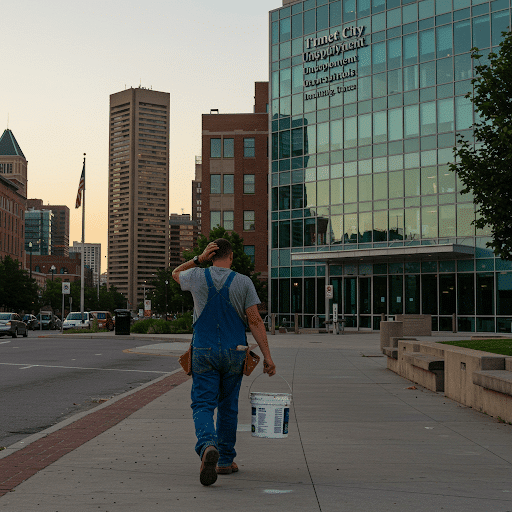If I Can’t Work After A Car Accident, Can I Recover My Lost Wages?

The title poses an agonizing question for my personal injury clients. In my experience, there are essentially three varieties of disability that an injury victim may experience after a Baltimore car accident or other personal injury causing event. Concepts that one sees frequently in workers’ compensation law may serve to illustrate the first two forms of disability: temporary total disability and temporary partial disability. If I Can’t Work After A Car Accident, Can I Recover My Lost Wages? Yes. You can. I’ve represented people throughout the years that have been injured to an extent that they are simply unable to return to work in any capacity for a period of time, those who make a full recovery, and those who fall in between.
Temporary Disability After Baltimore Car Accident
This type of disability-and corresponding wage loss- is defined by a total inability to work, but is temporary in duration. In other words, at some point, the injured individual recovers and is able to return to their prior occupation without limitation. A second scenario is one in which an individual sustains an injury, is able to return to work, however they might not be able to fully perform all of the requirements of their job. Ideally, if their employer can accommodate them, they are given some type of light-duty work but earn their regular wage. Unfortunately, not all employers have light duty work. In these instances, some individuals have their hours cut or might have to miss work altogether. Again in this scenario, after a period of medical care, attendance and recuperation, the injured individual recovers and is able to return to their former occupation on a full-time basis. This type of disability is also considered temporary rather than permanent, and partial as opposed to total. The individual is able to perform some, albeit limited, substantial gainful employment-related activity. As Attorney Eric T. Kirk advises.
Permanent Disability After Baltimore Car Accident
The third class of disability involves a situation in which an individual sustains injuries that are significant enough that they are simply unable to return to work on a permanent basis, or, physically unable to perform their prior job on a permanent basis. Typically the services of an expert are required to give an opinion as to that individual’s disability, and further what their wage-earning potential would have been but for the accident, and what it is now.
Loss of Earning Capacity in a Baltimore Personal Injury Claim
Loss of earning capacity refers to a diminished ability to earn income in the future due to an injury. Unlike lost wages, which are mathematical calculations based on past missed work, loss of earning capacity is forward-looking and often more complex to prove. To establish a strong claim, several key elements typically must be presented.
First, medical evidence is crucial. Expert testimony from treating physicians or independent medical experts must clearly show that the injury has long-term or permanent effects that limit the injured party’s ability to perform job-related tasks. This often opinions on includes physical limitations, chronic pain, cognitive impairments, or psychological conditions.
Second, vocational evidence helps demonstrate how the injury impacts the individual’s ability to work. A local Baltimore vocational rehabilitation expert can evaluate job skills, training, education, and current labor market conditions to assess the difference between pre-injury and post-injury earning potential.
Third, economic testimony from a financial expert or economist is often used to quantify the projected lifetime loss of earnings. Called a “life plan” by some insurance defense lawyers, this analysis considers the person’s age, work history, projected career trajectory, and standard wage increases over time.
In the case of permanent disability, the injured person is going to be entitled to collect what they could have earned over the course of their expected life but for the injuries caused by the accident. In all three of these scenarios, certainly, the injured person is entitled to collect as an element of their economic damage claim the wages or other income that they lost during their period of disability. Where that time away from work is fixed, the amount of wage loss is readily calculable. However, where the injured individual is unable to return to work or is unable to return to their prior employment, proof of future lost wages or proof of loss of future earning capacity can be somewhat more detailed. A skilled personal injury attorney can assist you in making such a claim. Of course, and in addition to whatever claims the injury victim might have against the at-fault party, they may additionally be entitled to personal injury protection lost wage payments*, up to the limits of the PIP coverage. [Although the Assembly has recently enacted a change in this process. Marylanders now have the option of carrying less insurance. An insured may now reject personal injury protection altogether, under specific circumstances. See Insurance Article, Md. INSURANCE Code Ann. § 19-506.1.]
I have handled and evaluated thousands of injury and accident cases over the years. I extend a complimentary strategy conference, evaluation and analysis process that I employ in every personal injury case brought to us. Contact me today to begin this process. 410 591 2835.



